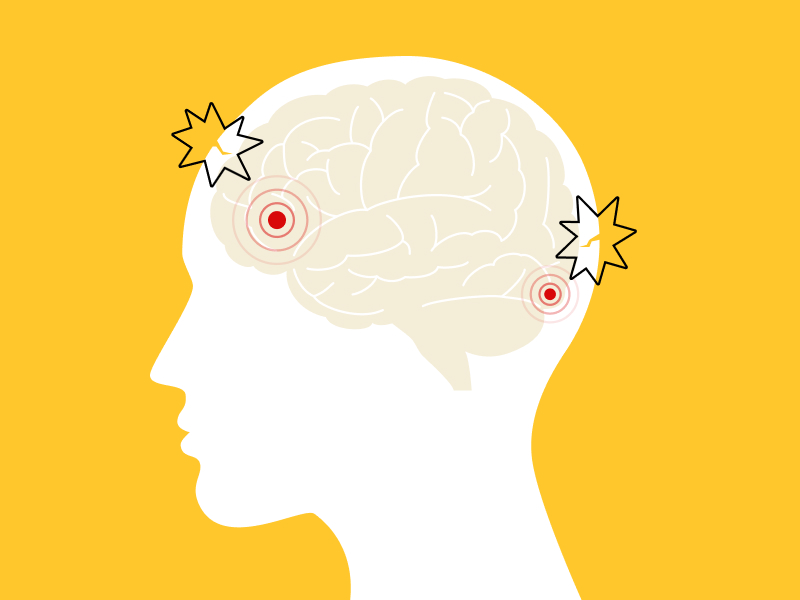What is a head injury ?
Basically, it is a blow to the head that has after-effects on the brain.
A head injury, or traumatic brain injury, is a blow that shakes the brain in the skull or an injury to the head that damages neurons, causing cerebral dysfunction.
Depending on what part of the brain is injured, after-affects can vary widely, ranging from mood swings to paralysis. There are as many after-effects as there are brains. That’s what makes head injuries even more difficult to manage.

“A head injury is for life.”
Is it serious?
That depends. If the head injury is light (such as a concussion), the dysfunction can be temporary, until everything settles back into place. But neurons don’t grow back. With moderate or severe head injuries, the after-effects are often permanent and can manifest in all sorts of ways.
Physical disorders
Total or partial paralysis
Coordination problems
Reduction or loss of vision and hearing
Cognitive disorders
Learning difficulties
Attention and concentration deficits
Memory and language disorders
Psychological issues
Impatience
Loss of inhibition
Aggressiveness
For example, Christian no longer has short-term memory or inhibitions.
Head injuries hurt on the inside.
|
A head injury can leave invisible scars. Brain injuries can alter not only physical abilities, but also change the personality of those who have suffered a head injury. These after-effects can hamper day-to-day activities and social skills. They can also generate consequences for the family, society, careers, and more. The victim is not always aware of these after-effects, which can aggravate their sense of confusion and inadequacy. |
Self-esteem
Isolation
Prejudice
Loss of independence
Professional challenges
Support required
Someone who has suffered a head injury will probably need support. But the nature of that help is extremely hard to anticipate and standardize.
People living with a head injury who have cognitive difficulties may need memory tools to organize their daily lives or stimulation to counter apathy and maintain gains. For a child with multiple disabilities, it may be a respite activity to help them reach their full potential. And for someone who needs round-the-clock supervision, an educator can help with a little outing, giving loved ones a break at the same time.
All of this is done across the province. So, all kidding aside, your donations count.
Prévention
Prevention never hurt
|
Wear a helmet when you engage in contact sports.Don’t text, drink, or speed and drive. It sounds obvious, but the major causes of head injuries are sports, falls, and traffic accidents. - Head injuries are the leading cause of death among men under 35. - On Québec roads, a new head injury occurs every 4 hours. - Traffic accidents are responsible for 45% of all head injuries. Take care of yourself! |




